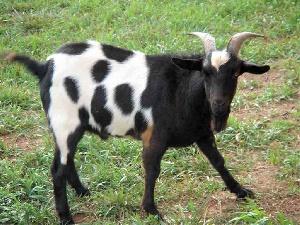Business News of Friday, 28 November 2014
Source: GNA
Workshop on livestock development policy opens
A national workshop for the formulation of the country's liivestock development policy and strategy has been launched at Sogakope.
The two-day workshop being supported by the Food and Agriculture Organisation (FAO) was to design policies and formulate strategies for the livestock sector to increase production and regulate the activities of the sector.
Dr Hannah Bisiw, Deputy Minister for Food and Agriculture in charge of Livestock, speaking at the launch said the poor performance of the livestock sector was due to the low state investments in terms of annual budgetary allocation.
She said the public sector investments in the sector was not only in the direct allocation of annual budgets but also through projects which government had secured loans from development partners to implement.
Dr Bisiw called on stakeholders to come out with practicable, implementable and focused policies that could be immediately put to use as a testimony of the huge investments expended into organising the meeting.
The Minister said "we need to do something that can increase local consumption of local poultry products and other meat as our contribution to the government campaign of 'Home-Grown Policies'."
She said one other concern in the development of the sector was timely diagnoses of animal diseases, indicating that the diagnostic capacity of the regional veterinary laboratories have been neglected.
She urged the participants to reach a consensus on right policies to increase animal protein availability to meet the demand of a growing population.
She commended the FAO for extending financial support for the review and formulation of animal health and production in the country and now supporting the policy design and formulation.
Dr Lamourdia Thiombiano, FAO Deputy Regional Representative for Africa, in a speech read for him, noted that several trends in the demand and supply of livestock products in Africa indicated that by 2030 to 2050 the demand would increase by eight fold due to increase in the population in urban areas and increased in incomes.
He said to meet the projected increase in demand for livestock products, the sector needed to grow by 5-6 per cent annually from the current rate of about 2.4 per cent, however, the sector faces a variety of challenges that hinder it from meeting the rising demands.
Dr Thiombiano said the lack of supportive institutional and policy environment, among other factors, made the livestock sector uncompetitive and unattractive to investors.
He said the FAO has supported Ghana through the Ministry of Food and Agriculture in a number of areas including the livestock sector.











